Google Pixel 9 vs Google Pixel 8: Don't feel forced to upgrade
We may earn a commission if you make a purchase from the links on this page.

Intro
Google’s Pixel 9 has arrived, following closely in the footsteps of the Pixel 8. Despite the short gap, this isn’t just a minor iteration—there’s more substance to this release than you might expect.
The Pixel 9 brings a series of upgrades that could catch your attention. It introduces a refined design, faster performance, longer battery life, and a slightly improved camera. But the real star of the show? A suite of new AI-powered features that teeter on the line between eerily smart and genuinely helpful.
Still, the big question remains: are these changes compelling enough to ditch the Pixel 8? Should current Pixel 8 owners stick to what they have, or does the Pixel 9 warrant a second look? And for those considering a new phone altogether, where does the Pixel 8 now stand with its successor in the picture?
We’ll explore all of this and more as we dive into the nitty-gritty of what sets these two phones apart.
The Pixel 9 brings a series of upgrades that could catch your attention. It introduces a refined design, faster performance, longer battery life, and a slightly improved camera. But the real star of the show? A suite of new AI-powered features that teeter on the line between eerily smart and genuinely helpful.
Pixel 9 vs Pixel 8 differences:
| Pixel 9 | Pixel 8 |
|---|---|
| A flat new design, with a flatter style | A more classic design, reminiscent of the Pixel 6 and Pixel 7 |
| Ultrasonic fingerprint scanner (faster and more accurate) | Optical fingerprint scanner (arguably slower and less accurate) |
| Tensor G4 (4nm) on board | Powered by the Tensor G3 (4nm) |
| 12GB RAM on board because of AI | 8GB of RAM |
| The same 50MP main but a new, higher-res 48MP ultra-wide camera | 50MP main and 12MP ultra-wide cameras |
| Starts at $799 | $699 starting price |
Read more:
- Google Pixel 9 release date predictions, price, specs, and expected upgrades
- Google Pixel 8 review: doing things the Google way
- Google Pixel 9 vs Pixel 7: Are we in peak Pixel territory yet?
- iPhone 16 vs. Pixel 9: A promising battle
- Google Pixel 9 vs Google Pixel 8: The Pixel 9 is better, but don't feel forced to upgrade
- Pixel 9a vs Pixel 9 preliminary comparison: Immense value meets unbeatable price tag
Design and Size
The Pixel is getting a more mature and snazzy style
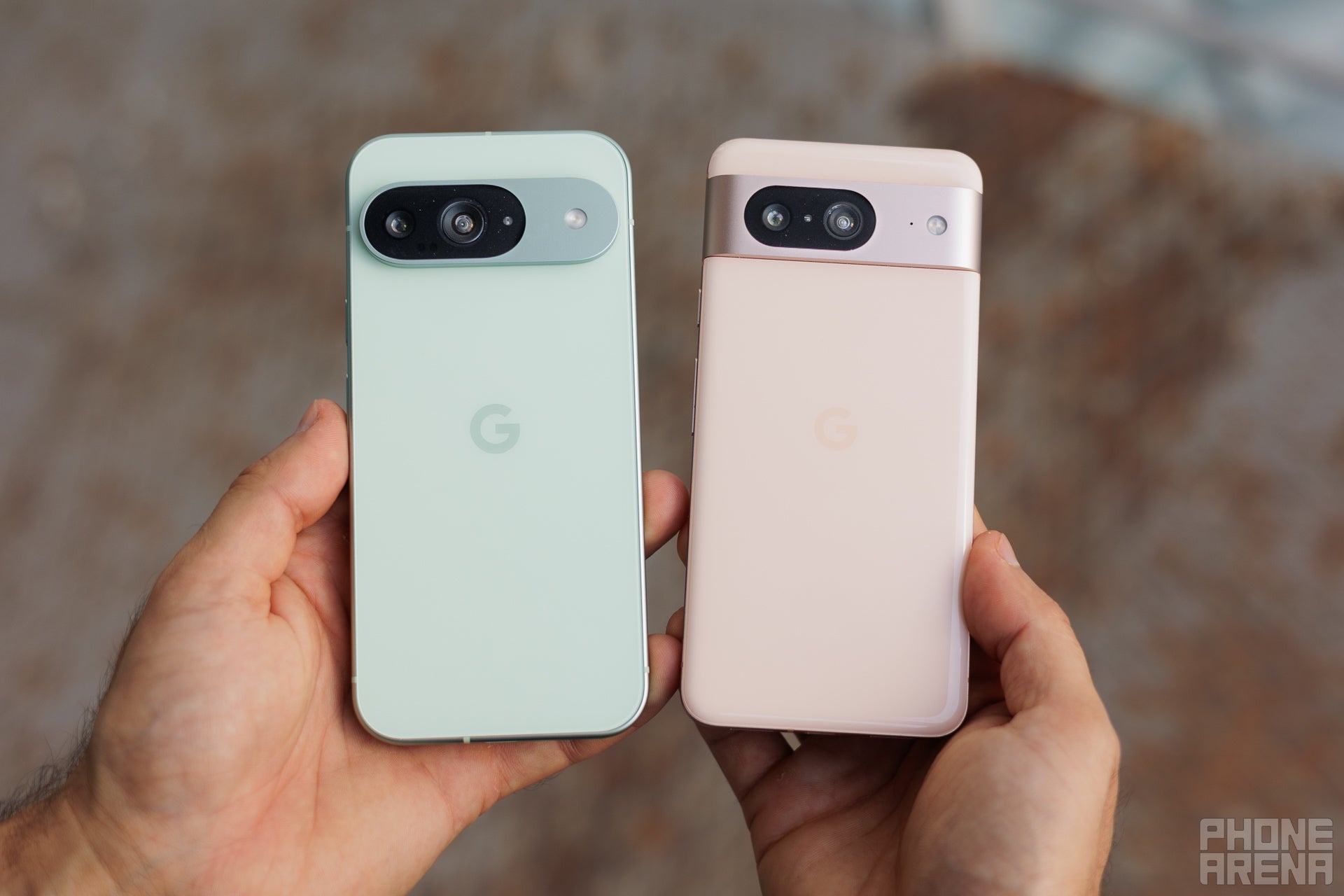
The Pixel 9 is larger on all accounts (Image by (PhoneArena)
The Pixel 9 debuts a very new design language for Google, which follows the latest trends to the T. Just like all recent iPhones and Galaxy flagships, all Pixel 9 phones get that (iPhones have been using that design for a few generations, and Samsung joined forces with the Galaxy S24 series). Both the front and back of the phone, as well as the frame on the sides, are completely flat.
The Pixel 9 has a matte aluminum frame, while the glass at the rear employs a glossy look. This is thoroughly different in comparison with the slightly more premium Pixel 9 Pro and Pro XL, which have glossy frames and matte back glass on deck.
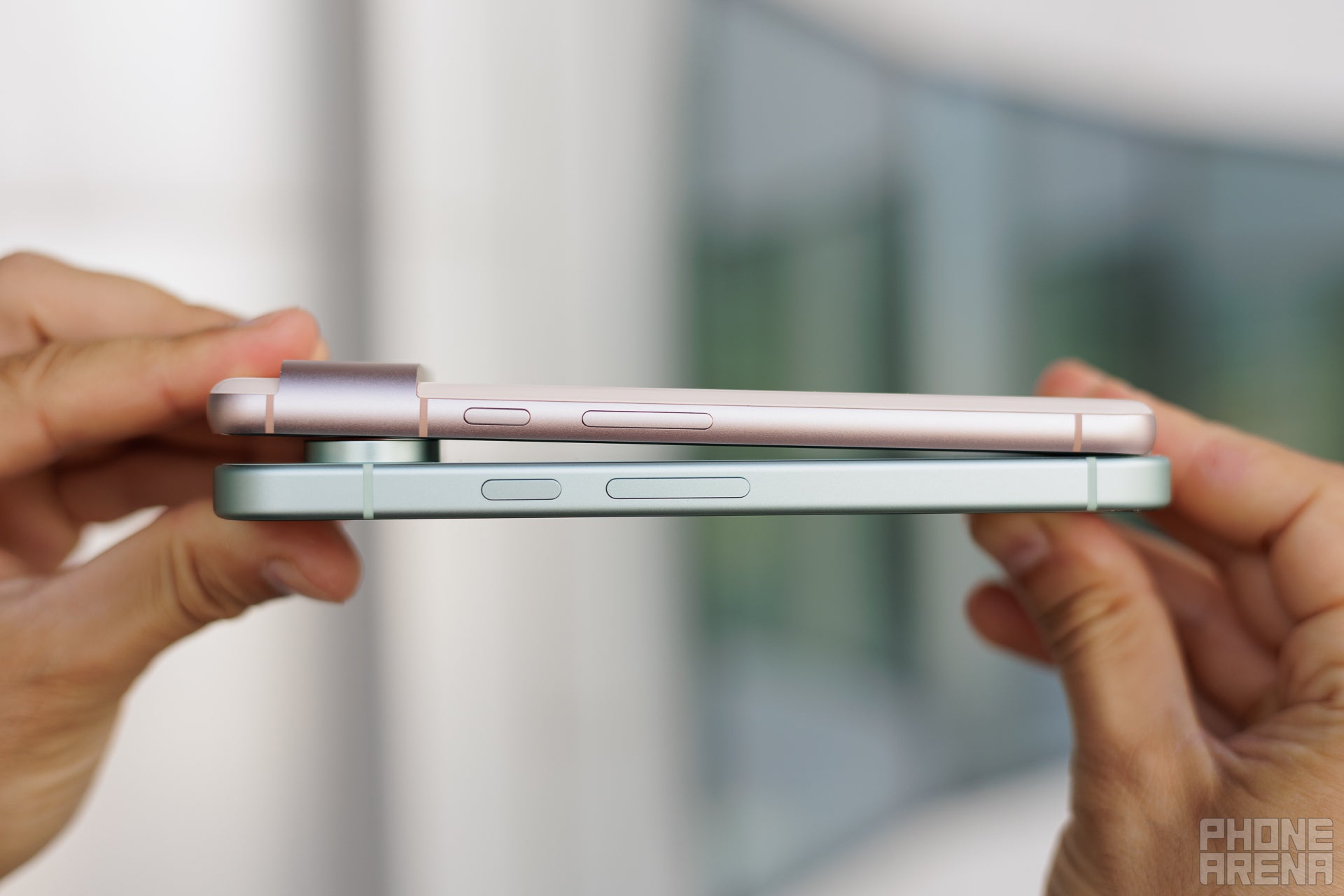
The Pixel 9's more mature design (Image by PhoneArena)
A notable design change can be seen on the back of the phone. The side-to-side camera strip at the rear has been completely redesigned and is no longer connected with the side frame. Instead, it sticks out of the back of the phone in a dedicated camera island, similarly to the Google Pixel Fold. It's fresh and new, and still unmistakably Pixel, so this change is welcome.
Last year's Pixel 8, on the other hand, employs a slightly curved side frame and back glass, which surely boosted the ergonomics when holding the phone and made for a pleasant experience in the hand. The Pixel 8 also employs the good ol' camera strip at the back, which became a signature design element of the Pixel lineup with the Pixel 6 series a couple of years ago.
Each design has its pros and cons: the Pixel 8 feels more compact due to the overall dimensions and shape of the frame, while the Pixel 9 has a more premium build, all things considered.
The Pixel 9 has inherited the Pixel 8's IP68 water and dust resistance, which was expected. This means both devices allow for submersion in up to 1.5m of freshwater for up to 30 minutes, and complete protection against dust. That's the flagship standard these days, so we expected nothing less of Google.
Colors-wise, the Pixel 9 is available in Porcelain, Peony, Wintergreen, and Obsidian colors, while you could have the Pixel 8 in Mint, Hazel, Obsidian, and Rose.
Display Differences
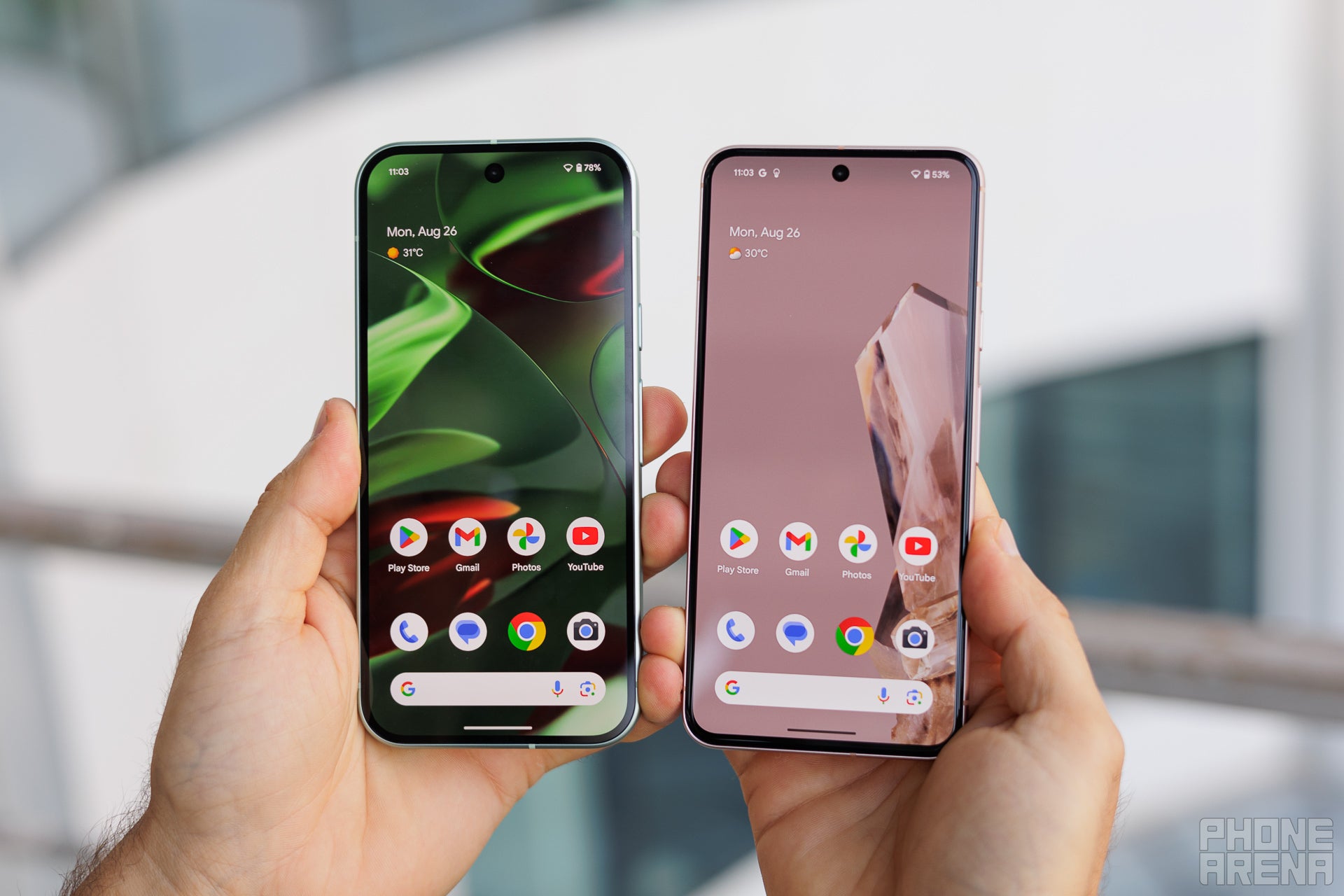
You get a much better display with the Pixel 9 (Image by PhoneArena)
The Pixel 9 scores a minor display size increase, growing back to the 6.3-inch display size of the Pixel 7. The Actua OLED display is back with a bang, now with a smooth 60-120Hz refresh rate (but the Pixel 9 and 9 Pro XL are smoother) and a very high brightness.
Last year, the Pixel 8 scored a 6.2-inch display with a very high 2,000-nit peak brightness, which was among the big selling points of both said Pixel 8 and the Pixel 8 Pro. However, the Pixel 9 seems like a sound upgrade on all fronts that matter: size and brightness.
As per our own display tests, all conducted in a controlled environment, the Pixel 9 definitely scores an improvement. You get a much brighter screen that reaches nearly 2,000 nits of brightness, as well as slightly better overall display properties, like better color accuracy thanks to a lower Delta E. The minimum brightness of just 1.8 nits is okay, but we've seen phones with lower than that. Other than that, both screens look great in real life.
One major improvement that has come with the Pixel 9 series is the use of an ultrasonic fingerprint sensor. That one is much faster and more accurate than the optical sensor embedded into the Pixel 8 display. That's a great change that we applaud, as previous Pixels were absolutely held back by the inferior fingerprint sensors that Google had put inside.
Performance and Software
Faster and newer
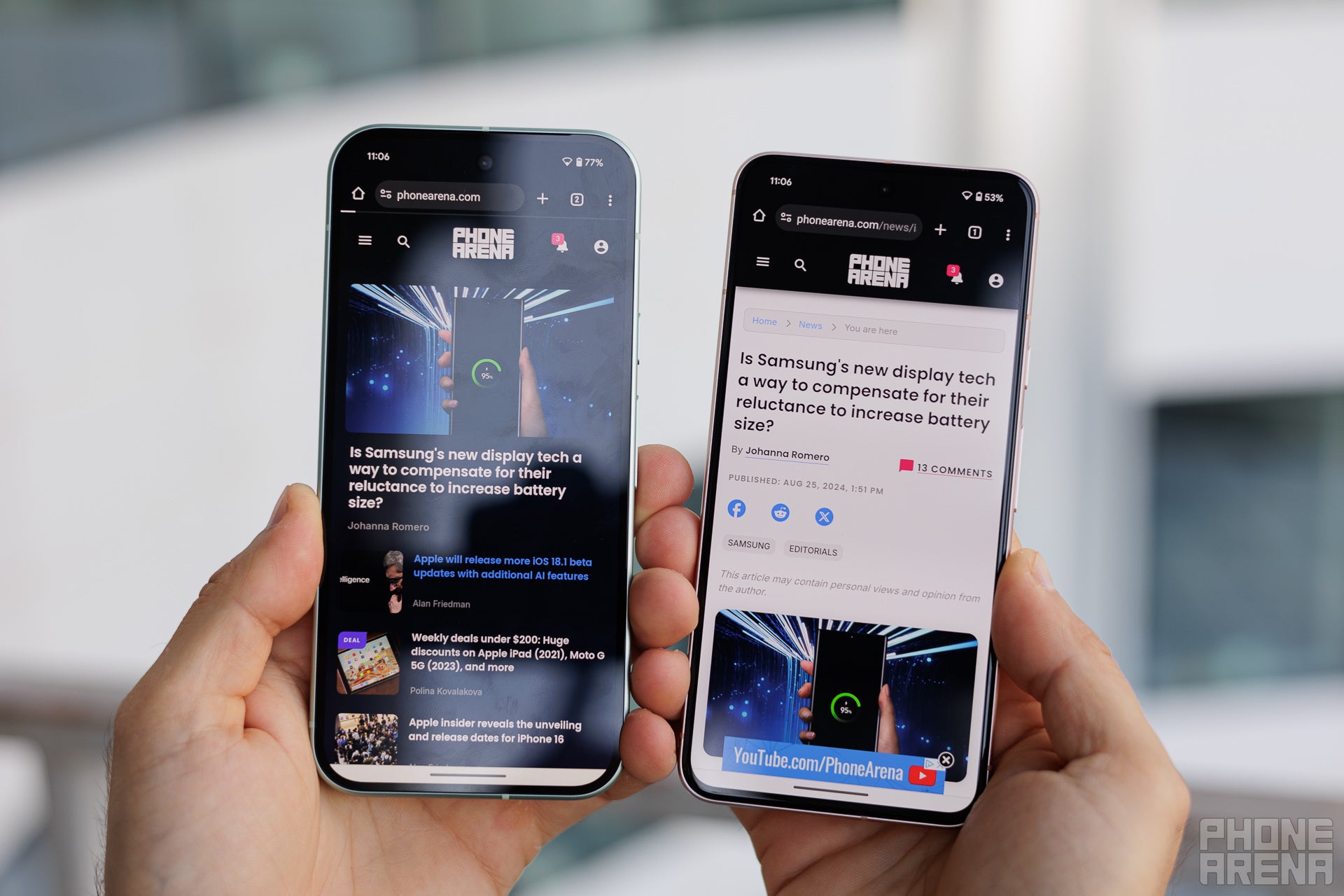
The Pixel 9 series all employ the upcoming Google Tensor G4 chipset, which is based on a 4nm manufacturing node. It appears that Google will transition to 3nm with the Tensor G5 next year; it also looks like that chip will be fully custom as per Google's requirements.
As a refresher, Tensor chips are built with AI in mind, so the raw performance element is usually secondary in importance. We can't wait to test the new Pixels before we can say for certain.
In our benchmark tests, the Pixel 9 scores a small but notable performance bump. In both the multi-core and single-core Geekbench 6 tests, the Tensor G4 outpaces its predecessor; the same applies to the graphics capabilities of the new Pixel, though the difference isn't that big. We noticed the same small bump in the 3DMark Extreme graphics stress test; it's neat that we get a small increase in performance, but nothing too grand.
Aside from the synthetic benchmark results, the new Pixel feels super responsive and snappy in real life, but admittedly, so does the Pixel 8; you can't really perceive any significant difference. This means that the new phone definitely won't rock your socks off in comparison with the older model.
The Pixel 9 also features more RAM than before, some 12GB to be exact. This increase was necessary due to AI's tasking requirements. The Pixel 8, on the other hand, gets 8GB of RAM, which isn't little, but is surely less impressive in comparison and hurts the future-proofness of the new Pixel 9.
Both devices will enjoy a lengthy seven-year software support, including major Android releases, security patches, and feature drops. The Pixel 8 will be supported until 2030, while the Pixel 9 until 2031.
Both the Pixel 9 and Pixel 8 currently run Android 15, which was released in mid-October. The latest software update doesn't have a ton of exciting new features, but delivers an overall polish to the whole operating system, with under-the-hood enhancements and improving the user experience.
Camera
New cameras for the new Pixel
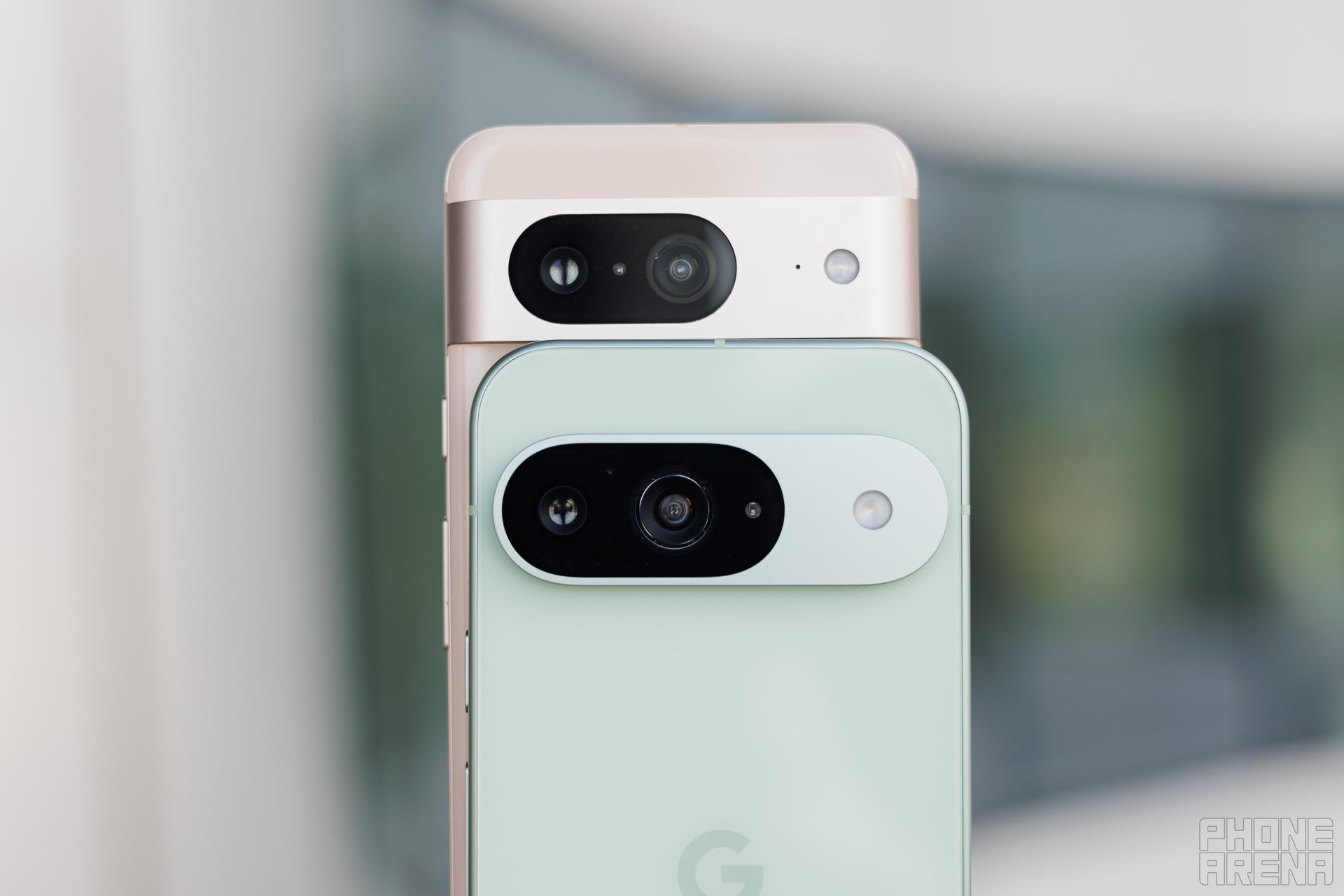
New camera island, who this? (Image by PhoneArena)
The Pixel 9 comes along with a new ultra-wide camera, which finally improves on the standard 12MP snapper that has been around in the past few Pixel generations. The new 48MP ultra-wide boasts an f/1.7 aperture, so it should have pretty decent low-light capabilities, as well as a rather wide 123-degree field of view.
The main camera remains the same 50MP f/1.68 one with a 1/1.31" sensor that was also found on the Pixel 8, but the ultra-wide is a less impressive 12MP one with an f/2.2 aperture, so less light-sensitive.
The majority of improvements surely are the courtesy of software enhancements. AI also has a lot to play in the camera app, giving users a ton of new features to play with, like Add Me, which will let you automatically add yourself to a group photo using AI.
And just as we suspected, there are just minor quality differences between the new and the old Pixel. Let's explore these below.
Main Camera
During the day, it's nigh impossible to notice any significant difference between the main cameras of the Pixel 9 and the Pixel 8. We get similar sharpness, dynamics, and color reproduction, which is actually kind of expected. Both take lovely photos!
At night, however, it's the Pixel 9 that does a better job, mostly due to its superior dynamics. Squint your eyes, and you'll make out a tiny Ferris wheel in the Pixel 9 sample, while the Pixel 8 has produced a light smudge instead. That's a small, but important difference that can make or break a low-light photo!
Ultra-wide Camera
During the day, the new ultrawide camera does a pretty good job, but the difference isn't that big. Sure, we get more detail in the trickier areas, like the foliage and the straws of the beach umbrella. However, the Pixel 8 doesn't lag behind, it's just as good at resolving detail.
At night, the ultra-wide of the Pixel 9 also delivers better detail in comparison with the Pixel 8, just take a look at how sharp the stones are in the lower left. The dynamics also seem to be improved, with slightly more information captured in the seawater, for example. Other than that, both perform admirably.
Selfies
The selfie camera on the Pixel 9 is pretty similar to the Pixel 8 in terms of sharpness and overall detail, but it delivers lovelier and warmer colors, especially in the facial area. That's a slight move away from the overly realistic and dramatic style of the previous Pixel, which is definitely an acquired taste with its colder color palette.
Videos

Also read: Pixel 9 camera: All you need to know
Battery Life and Charging
Changes are coming
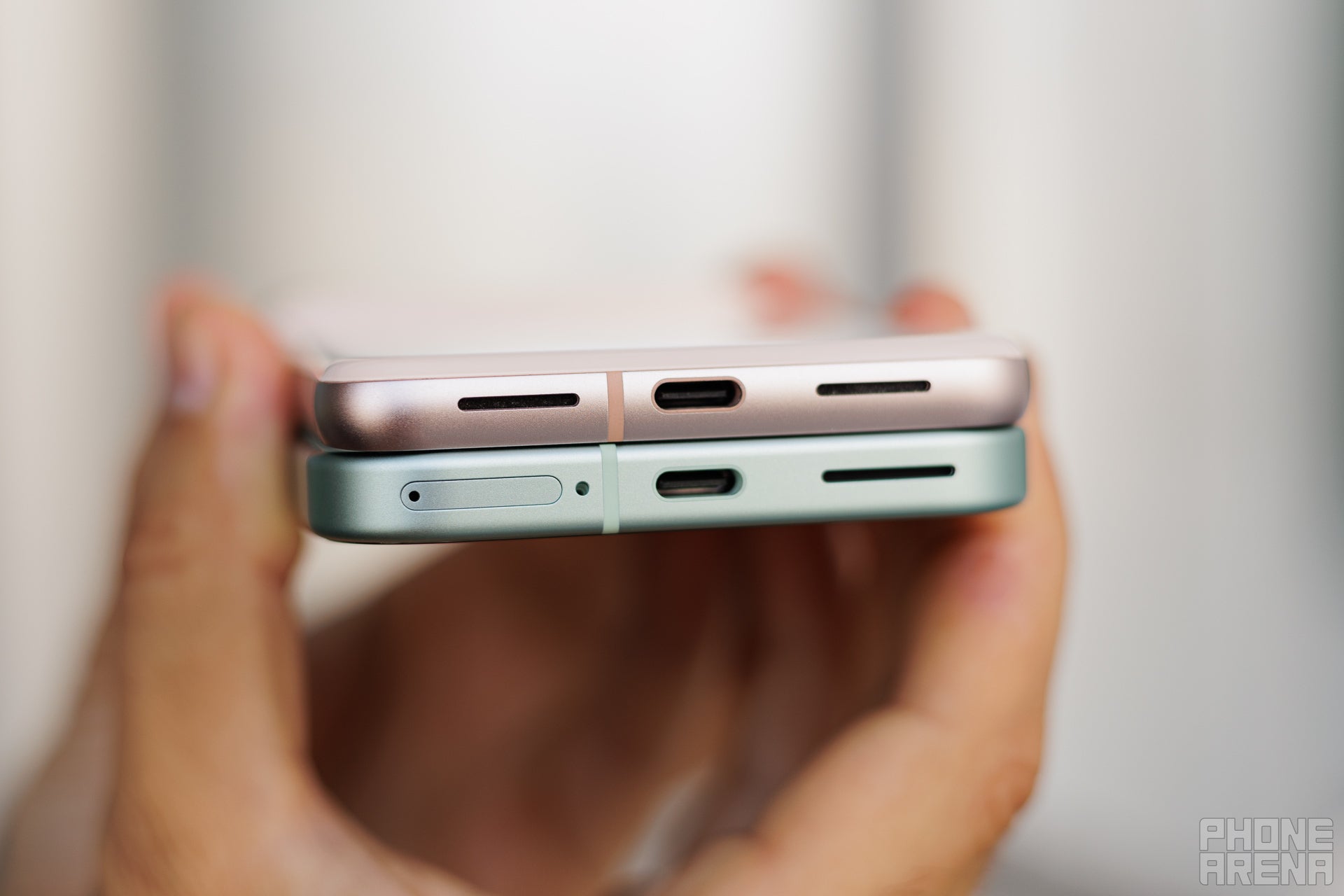
No surprises at the bottom (Image by PhoneArena)
The Pixel 9 arrives with a 4,700mAh battery, marginally larger than the 4,575mAh one on the Pixel 8. However, the difference is tiny, and we should also remember that the newer Tensor G4 chip is slightly more efficient. This should deliver much better battery life in comparison with the new phone, right?
For the most part, yes, the Pixel 9 lasts longer in two of our benchmark tests, but the Pixel 8 isn't that far behind in either one and actually wins in our third test. It's mostly unlikely that you'd notice a major difference in real-life scenarios.
For the most part, yes, the Pixel 9 lasts longer in two of our benchmark tests, but the Pixel 8 isn't that far behind in either one and actually wins in our third test. It's mostly unlikely that you'd notice a major difference in real-life scenarios.
Here's how the regular Pixel 9 fares:
In the PhoneArena web browsing test, which emulates a regular browsing experience, the Pixel 9 outlasts the Pixel 8 by a solid two hours, achieving 17 hours and 34 minutes. The Pixel 8 still lasts an impressive 15 hours and 39 minutes.
In our video streaming test, which mimics a standard video playback session, the Pixel 9 goes for 8 hours and a half, a good result, but the older Pixel 8 surpasses it by an hour and some change. It's a draw of now, but the Pixel 9 triumphs in our 3D gaming test, where it lasts for 10 hours and 4 minutes, while the Pixel 8 perseveres for 9 hours and 6 minutes.
So, you will have a marginally better battery life with the newer Pixel, but the Pixel 8 still brilliantly holds the ground. If you've been hoping that the Pixel 9 will deliver significantly better battery life, it's mostly a no-go.
In our video streaming test, which mimics a standard video playback session, the Pixel 9 goes for 8 hours and a half, a good result, but the older Pixel 8 surpasses it by an hour and some change. It's a draw of now, but the Pixel 9 triumphs in our 3D gaming test, where it lasts for 10 hours and 4 minutes, while the Pixel 8 perseveres for 9 hours and 6 minutes.
So, you will have a marginally better battery life with the newer Pixel, but the Pixel 8 still brilliantly holds the ground. If you've been hoping that the Pixel 9 will deliver significantly better battery life, it's mostly a no-go.
PhoneArena Charging Test Results:
In terms of charging, the situation with the Pixel 9 isn't any different in comparison with the Pixel 8––Google hasn't bestowed us with an upgrade. Both the Pixel 8 and the Pixel 9 support 27W wired charging. Wireless charging support is also a common feature of both phones, with the Pixel 9 supporting 15W and the Pixel 8 18W of wireless charging.
Specs Comparison
Here's how the Pixel 9 vs Pixel 8 specs fare against one another. There are a few but noteworthy differences.
- You can also use PhoneArena's tool for additional Android phone comparisons.
Summary
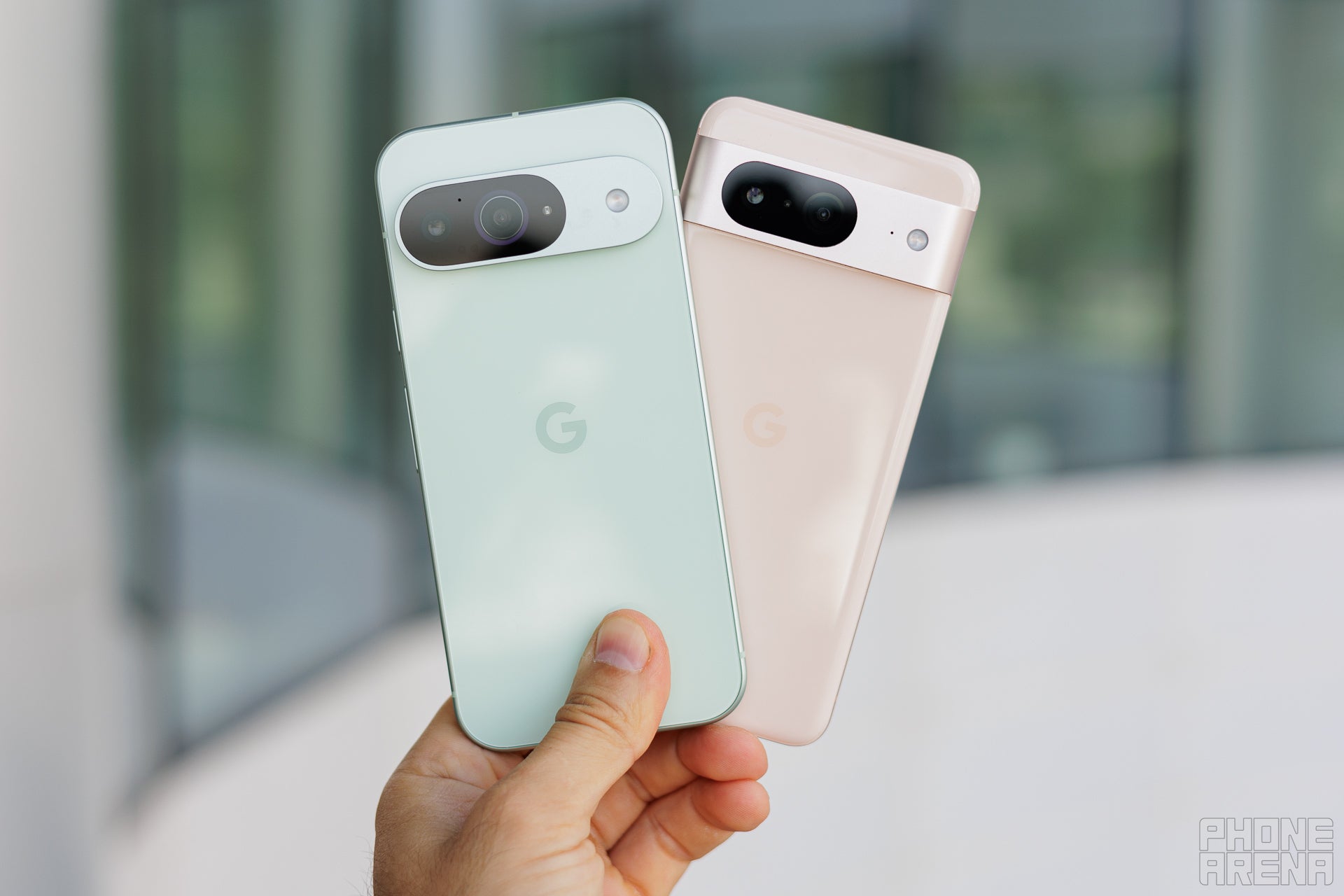
The jury has decided––Pixel 9 is a major win (Image by PhoneArena)
Although the Pixel 9 mostly perfects the general formula behind the Pixel 8, the improvements are all pretty important.
You get much better battery life, a better display, a slightly better camera setup with fine-tuned image quality, and better performance, as well as a much more future-proof device in the era of AI.
That said, the Pixel 8 is still a mighty capable phone that doesn't feel outdated. After all, it's been less than a year since the Pixel 8 broke ground.
If you've got one of those in your pocket, you'd probably gain little from upgrading, so your Pixel 8 will serve you just as good for many years to come.
Follow us on Google News


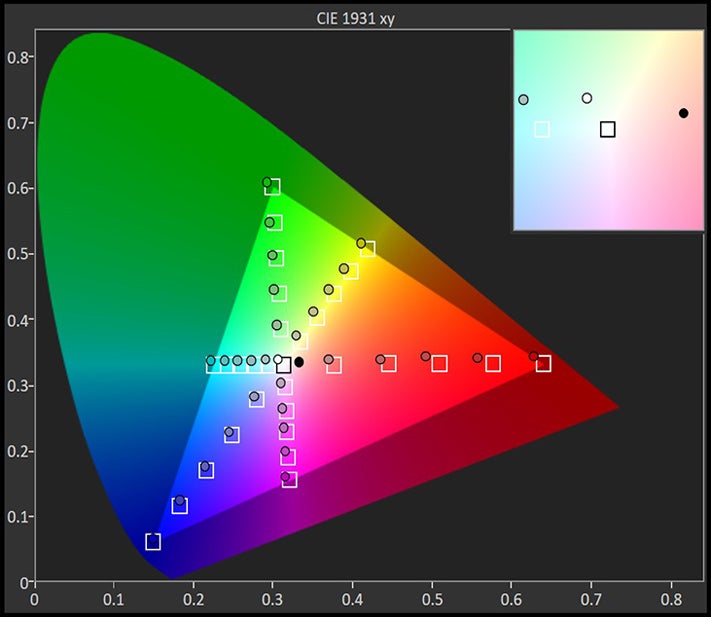
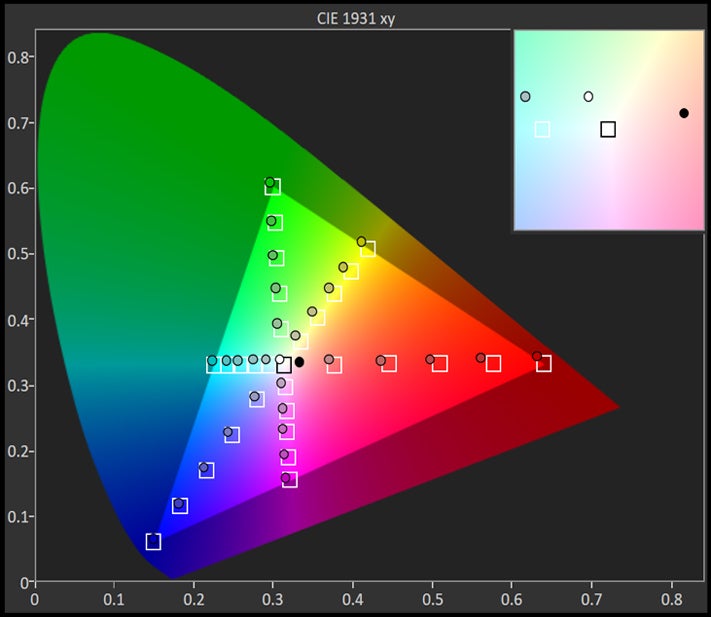




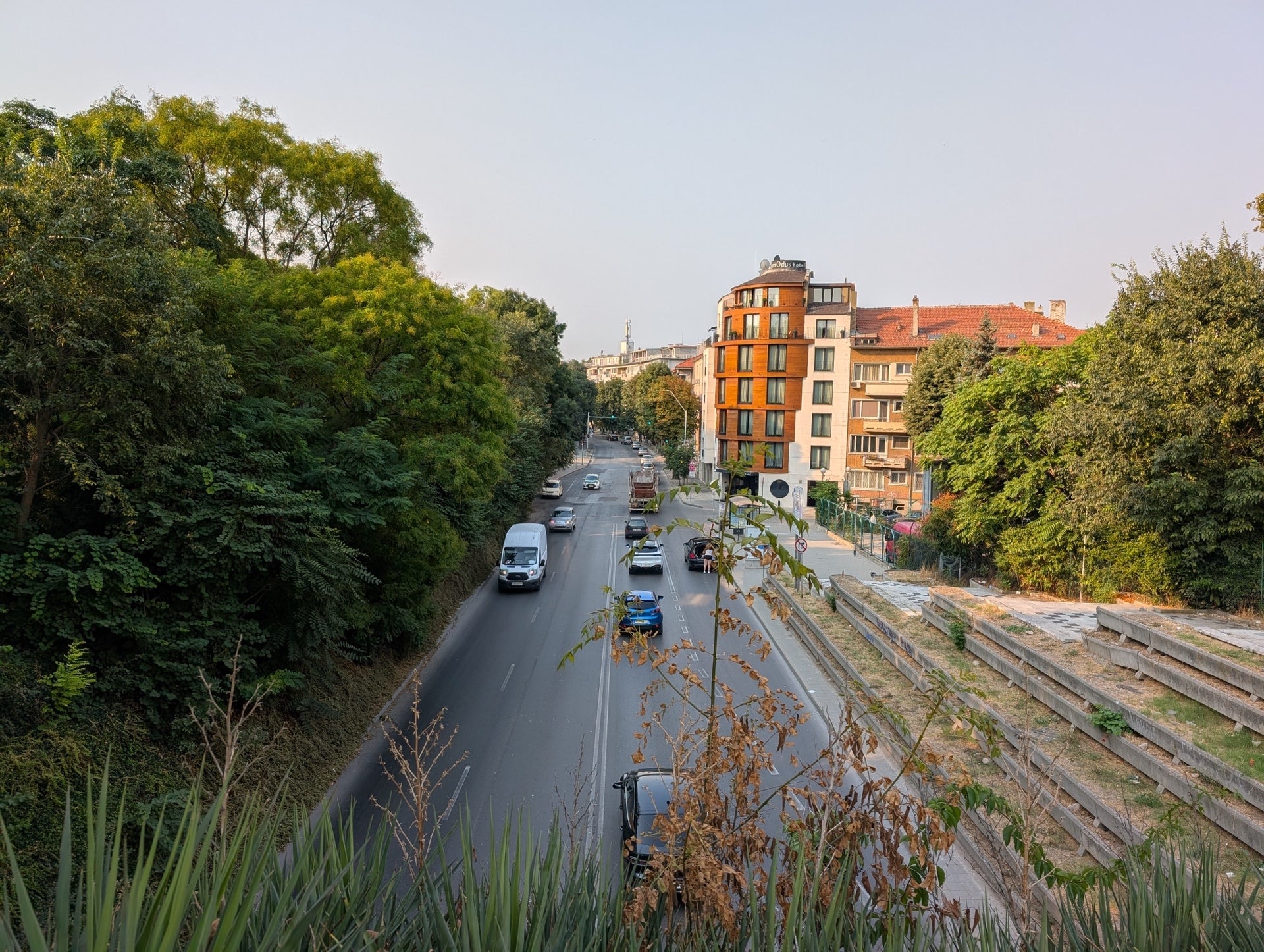
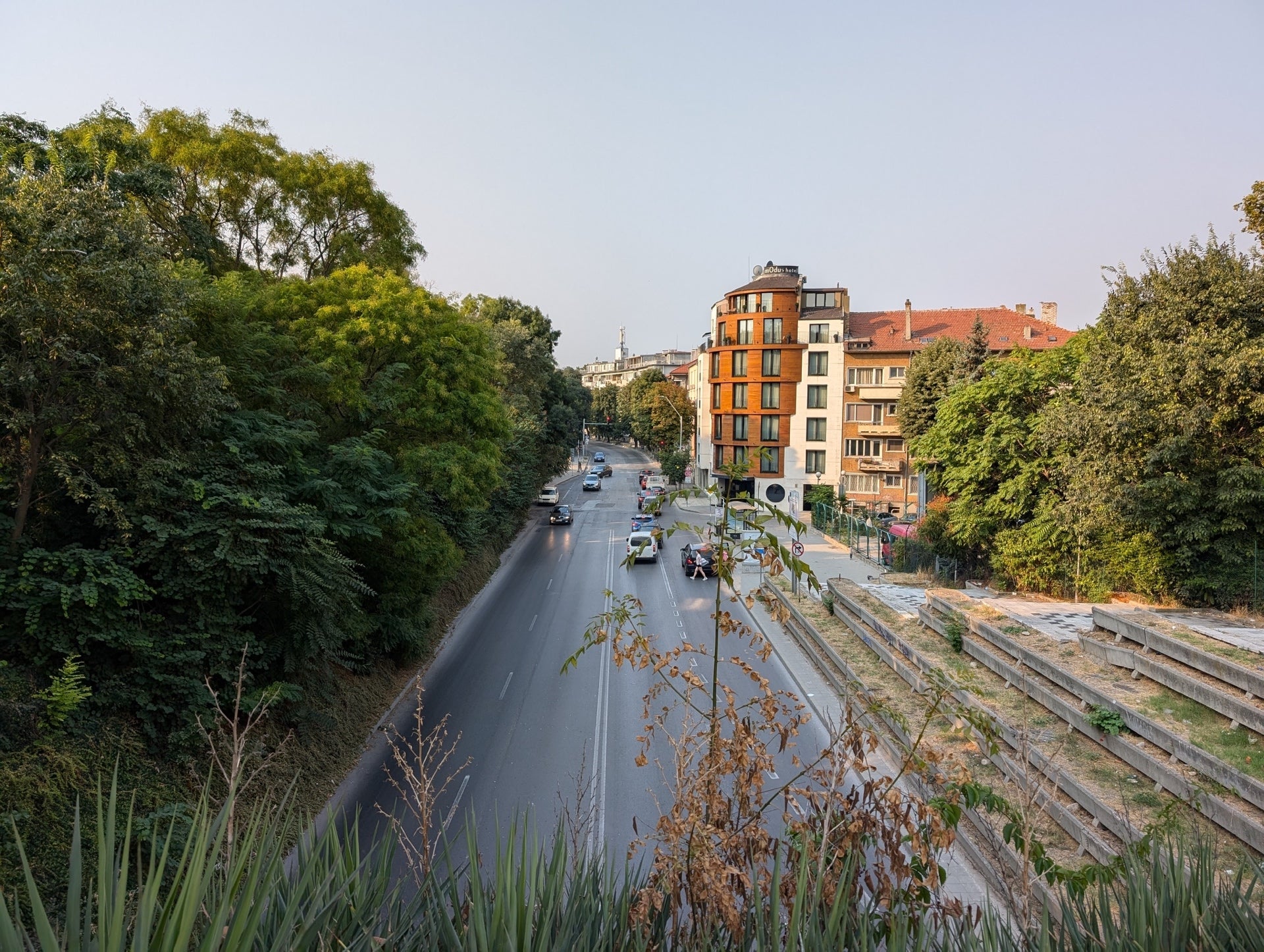


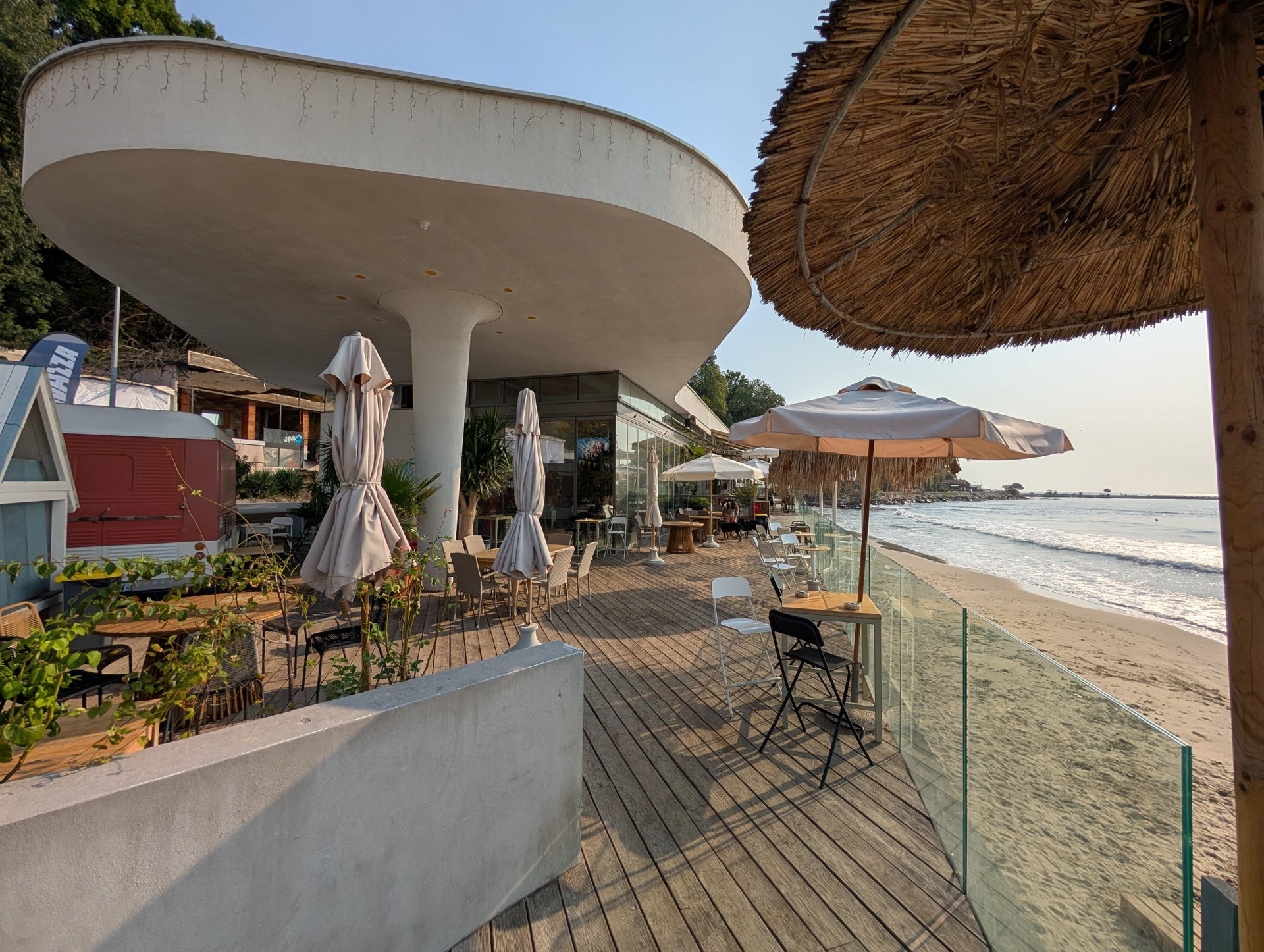
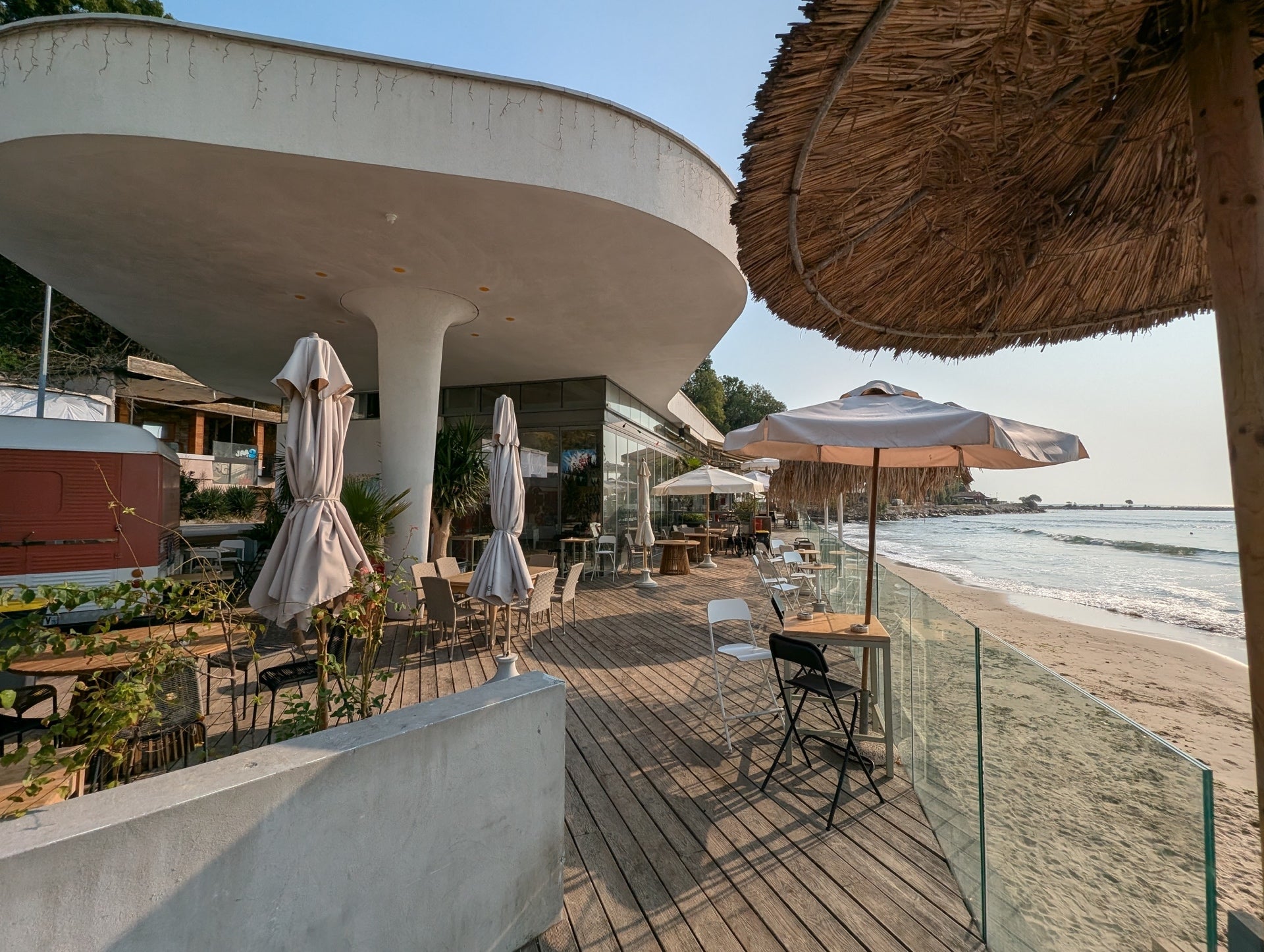
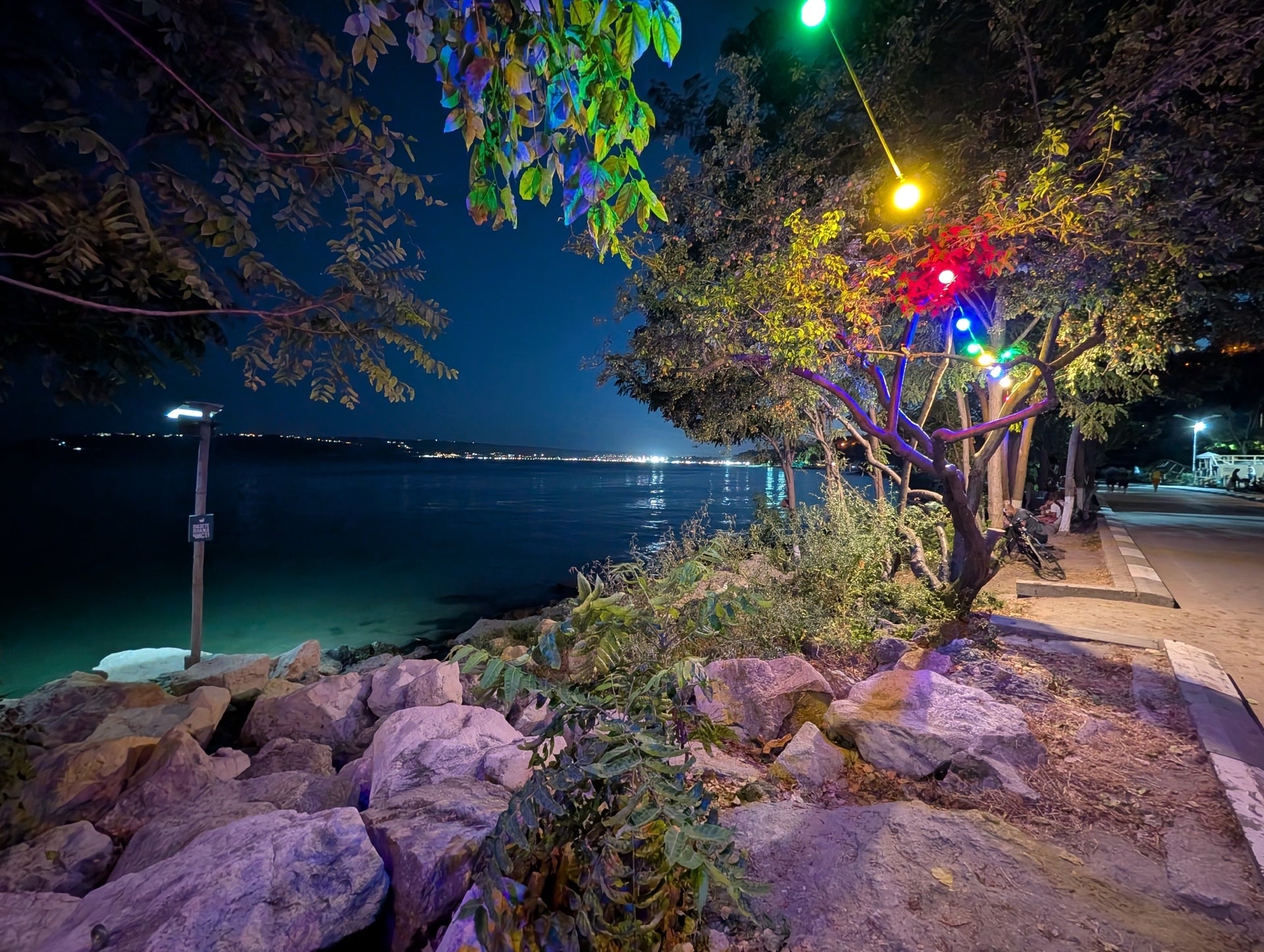
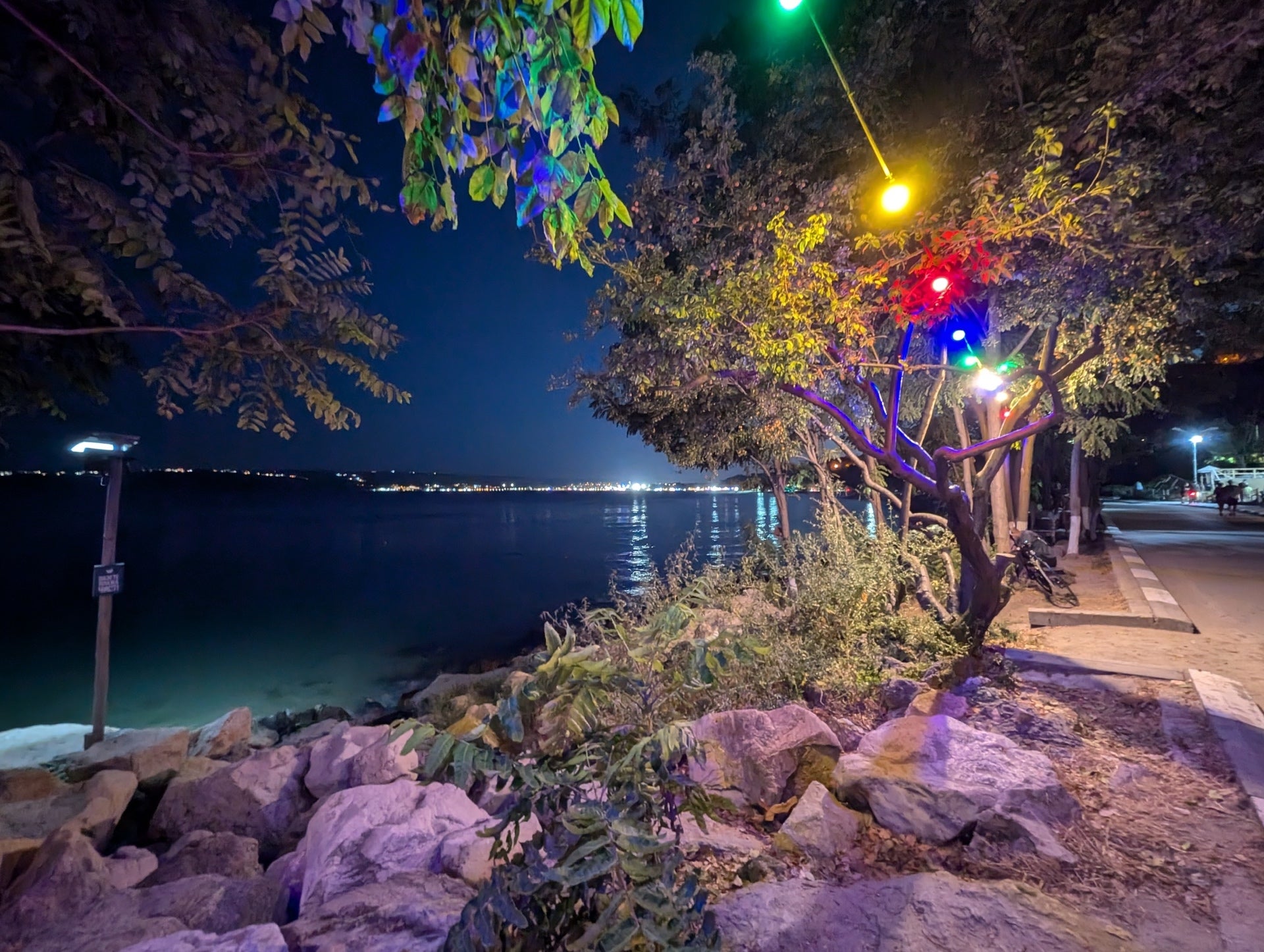








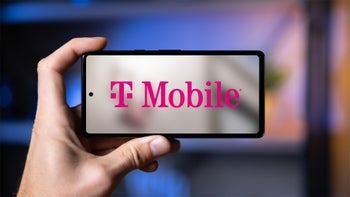












Things that are NOT allowed:
To help keep our community safe and free from spam, we apply temporary limits to newly created accounts: